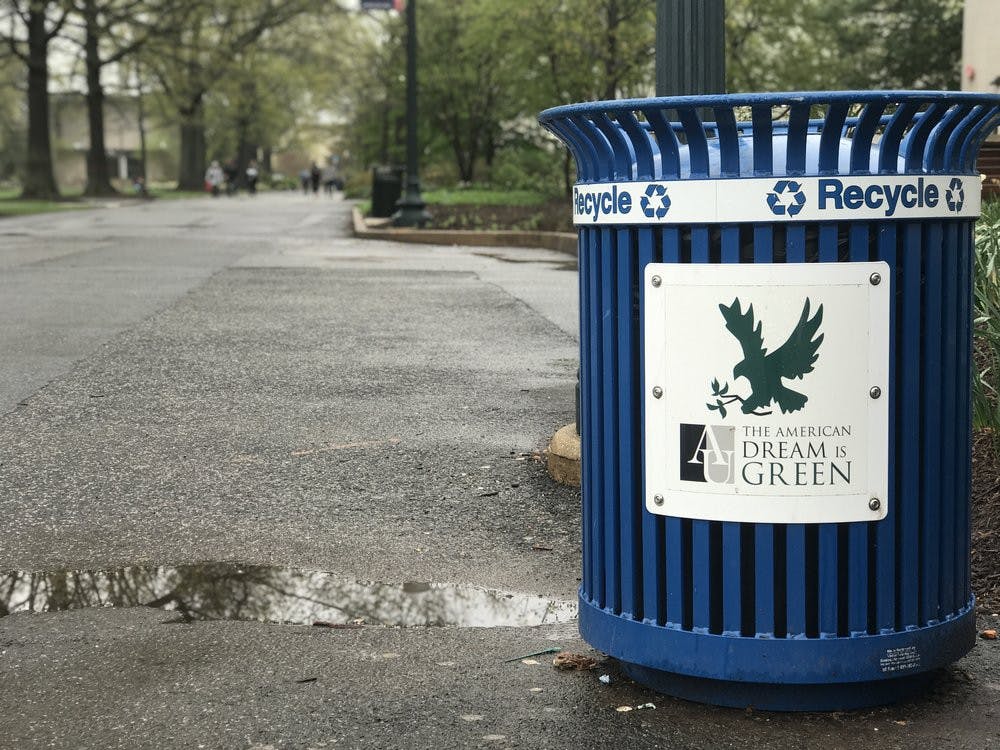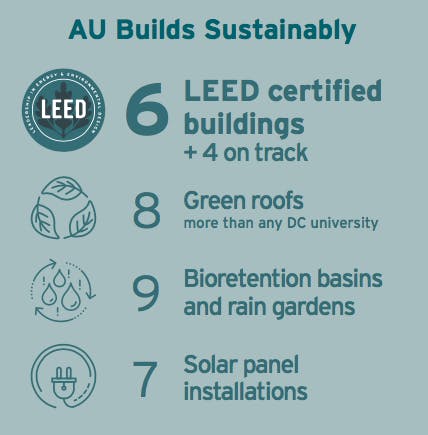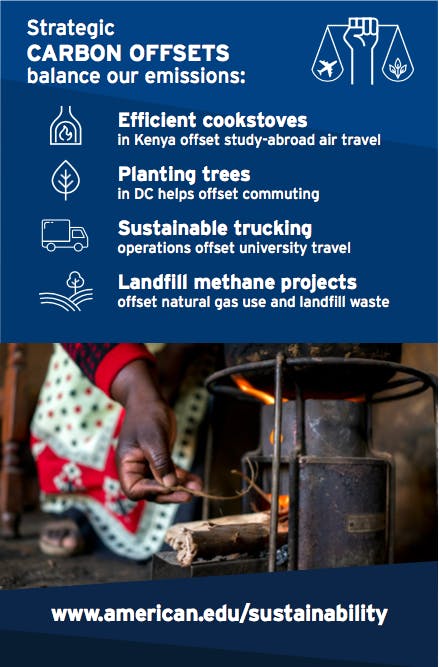BY: ALEXIS ARNOLD

Photo by Lauren Lumpkin
American University President Sylvia Burwell announced today the university has achieved carbon neutrality two years ahead of schedule, making it the first university in the country to do so.
AU introduced its sustainability plan in 2010, in which the university committed to achieving a net zero carbon footprint by 2020. This means the carbon emissions AU produces are balanced with the school's efforts to counteract them. These efforts includes providing UPasses to promote public transportation, installing eight green roofs on campus, and planting more than one million trees. All of AU's shuttles run on biodiesel and, in 2017 alone, AU composted more than 200 tons of waste and recycled an additional 260 tons.
Through the Office of Sustainability's strategic planning and contributions from students, faculty and staff, AU drove down its greenhouse gas (GHG) emissions faster than expected and showed its commitment to protecting the environment.

Photo provided by American University Communications
AU is also the first urban campus and first research university to achieve carbon neutrality. AU follows guidelines set forth by Second Nature, a nonprofit dedicated to accelerating climate action in and through higher education. Second Nature President Timothy Carter praised AU for "truly raising the bar of the country."
President Burwell also expressed her pride. "We wanted to demonstrate leadership and innovation in addressing the serious social, economic, and environmental issues associated with global warming," said Burwell. "Having a net zero carbon footprint reflects our commitment to acting on our values and leading into the future."
AU's journey to carbon neutrality started by improving the energy efficiency of campus buildings. Then, the school moved to running entirely on renewable energy. Nearly 50 percent of the school's electricity comes from solar panels.
Finally, AU turned to funding carbon offsets to compensate for the rest of the carbon emissions the school does produce. For example, the university has invested in energy efficient cookstoves in Kenya to offset the air travel students use to study-abroad.

Photo provided by American University Communications
The commitment to sustainability was a campus-wide effort. 500 faculty members are certified as Green Teachers for integrating sustainability into their lessons and teaching methods. "Sustainability is something that our students care deeply about," said Kiho Kim, an environmental science professor at AU. "But more than talking about it, we have to model the behavior we want to see in the world around us."
One environmental studies course collected data on pollution in the local environment. AU Scholars prepared a Sustainable City design project. Other students produced short films about AU waste practices and campus waste infrastructure.
Despite these achievements, AU has been criticized for its investments in fossil fuels. Gracie Brett, an organizer for Fossil Free AU, has been vocal in calling for complete divestment from the top 500 fossil fuel companies.
AU Board of Trustees member Gaurdie Banister also sits on Marathon Oil's board of directors. Banister is the former president and CEO of Aera Energy, a California-based oil production company owned by gas giants Shell and ExxonMobil.
"We don't know how much is invested in fossil fuels because investments are very secretive, but it's estimated to be about $4 million," said Bett.
Burwell has not mentioned any plans for divestment.
Student activism has been essential in diminishing AU's carbon footprint. Students have hosted zero waste events, joined campus-wide competitions to reduce waste, and have worked to educate the community about sustainability and the dangers of climate change.
"Climate change is one of the most urgent issues of our time," said Megan Litke, AU director of sustainability programs. "Each organization and individual has a responsibility to act to reduce their environmental impact. I'm proud to be a part of a university that takes this responsibility seriously and has acted to achieve carbon neutrality."
Read more about carbon neutraility at AU here.


